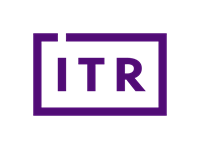Big tech changed everything for international tax
The OECD has been forced to question its own assumptions since the high-tech sector destabilised the international tax system. Taxpayers fear this shift will herald radical change, writes Josh White.
Author: Josh White
Related articles

The digital economy has pushed the boundaries of the existing order. This is why the international tax community has seen more change in recent years than it has for decades. The big question is whether the arm's-length principle (ALP) will survive.
"It was something of a shock for lawyers and economists that the OECD – the organisation that wrote the bible on arm's length – would have doubts about the ALP. This was a very significant change," says Pascal Saint-Amans, director of the Centre for Tax Policy and Administration at the OECD.
Taxpayers fear the erosion of the ALP will cost them dearly, yet it seems the next step in international reform will likely mean the ALP has to change. Double taxation and a wave of disputes are the front of every taxpayer's mind.
"We can stretch or adapt the ALP to do what we want," says Richard Collier, senior advisor at the OECD. "But if we stretch the colour blue to include green we won't have blue anymore."
"By analogy, if we're going to stretch and adapt the ALP we might end up with a more amorphous concept of the ALP which is not fit for purpose," he says.
This debate is taking place just as the BEPS project has become a global standard. It was the most comprehensive set of tax reforms the world has seen since the League of Nations laid out the foundations of the international system in the 1920s.
See also: Mexico’s VAT reforms risk foreign digital platforms exiting market
The pace has picked up precisely because some observers think the BEPS project did not go far enough. Although BEPS may have remade international tax, many companies and governments around the world think it has not answered fundamental questions.
Similarly, the G7 may have endorsed a global minimum tax rate, but leaders are yet to settle the details and reach an agreement at the G20. If it was tough to get this far, it will be even harder to get past the next hurdle.
"The aim of BEPS was to eliminate double non-taxation," says Janine Juggins, senior vice president of global tax at Unilever. "It sounds simple, doesn't it? You move to multilateral approaches and surrender some national tax sovereignty."
"This is difficult in practice because of the issue of sovereign tax policy," Juggins adds. "Any solution will have to be easy to explain and perceived as fair by the majority of the public."
Activate your free access to read more on Transfer Pricing on ITR:
Change at the OECD
The OECD has had to adapt in response to the digital tensions it faces. The US is defending its corner, while EU countries are prone to unilateral action and the developing world is increasingly assertive.
The US has a strong interest in making sure its interests are heard when it comes to the treatment of technology companies because all of the largest ones are American. This creates tension with European countries, who fear US companies are undermining their tax systems. Clearly, BEPS has not 'solved' international tax.
"Governments aren't happy with the BEPS project," says a tax executive at a European bank. "The project hasn't delivered the results they wanted. That's where we're now – looking at BEPS 2.0."
"The culprits are the big US tech companies that have been abusing the world tax system for years," the executive tells ITR.
US and EU will have to share power
The world of fiscal politics has changed. As much as the US is home to the world's biggest tech companies like Amazon and Google, China has its own platforms like Huawei and Alibaba. The future may be in the East and not the West.
"The US has an ambivalent relationship with the OECD and its projects," says Rasmus Corlin Christensen, tax researcher at the Copenhagen Business School. "The OECD has long been based on an alliance between the US and Europe. The digital economy is challenging this old alliance."
See also: Multinational groups cannot react fast enough to BEPS Action 4
"The OECD is a different beast than it was in the past," Christensen says. "The core of international tax policymaking is changing. It used to be that the US, the EU and the OECD set the terms of debate. Now many developing countries are pushing their own agenda outside this alliance."
As the traditional US-European alliance has broken down, China, India and Brazil have all asserted themselves and tried to shape the agenda through the Inclusive Framework. All of these countries have vast consumer markets and rapidly developing economies.
At the same time, the OECD has faced growing competition from other international organisations to take the lead on digital tax. Since these changes will affect trillion-dollar companies like Amazon and Apple, the stakes couldn't be higher.
"There's always been some competition between international organisations. However, the OECD is facing much greater competition on tax policy than it has historically," Christensen says. "The IMF, the EU and even the World Bank are all vying for influence."
"The significant economic presence proposal is a very comprehensive policy and it could work very well," he adds. "It was also conceived outside the OECD bubble."
The Indian government has taken a strong stance in favour of the significant economic presence proposal and fractional apportionment taking users as an allocation key. The West can no longer take its position for granted in a world of rising nations.
"The OECD does what it needs to do to stay relevant given that the world has changed so much since it was founded," one head of tax compliance at a financial institution tells ITR.
"The OECD thought it could keep governments on side with the ALP when it first launched BEPS," he says. "They still regarded arm's length as a sacred cow."
Arm's length was a commercial principle long before it became a fundamental part of international tax. So, moving away from arm's-length pricing would have dramatic implications for how businesses operate. Nevertheless, the role of the high-tech industry has been a game-changer.
"The assumption in the past was that the ALP was fine in theory and it just needed to be policed better," the head of tax compliance says.
"It turned out governments wanted to go after big tech," he adds. "So the OECD got on board."
Inevitable trade-offs
The OECD has gone from defending the existing system to weighing up proposals for radical change. It may be that the commonality between all the different approaches the Paris-based organisation has explored is that they each require a shift of gears.
This means there could well be a shift away from the ALP in favour of different principles. However, it's impossible to break with the existing system completely.
"We don't have the luxury of starting with a blank piece of paper," Collier says. "Going beyond the arm's-length principle raises the question of the relationship with it in the first place."
Activate your free access to read more on Transfer Pricing on ITR:
"Each of the three proposals represents a different way of thinking," he continues. "There are no mechanisms and no infrastructure in place right now for these changes. It would be very tempting to conclude it's just not possible to resolve these problems."
There will inevitably be compromises given the growing number of countries involved in the talks and the range of competing interests in the background. However, the OECD is more aware of these factors than ever before. It's no longer just about technical expertise.
"There is no point in adopting policies with no practical use in the real world," Collier says. "The question is, are we going to be able to live with the inevitable trade-offs?"
"There is no political appetite to get rid of the ALP and take on a completely different allocation approach," he stresses. "Technically, it would be a massive undertaking."
The OECD has always been eager to consult businesses, as well as stakeholders in civil society and academia. In the past, it was possible to draw up proposals in relative isolation and governments would make theory practical. Those days are long gone.
About ITR
The tax market has changed. With compliance challenges increasing, politicised tax policy on the rise, in-house teams are under more pressure than ever before. This has meant the type of information they need has changed too. Tax directors and their teams have told us they want more than simply legislative updates and black letter analysis.
Instead, certainty comes from peer insight, in knowing how counterparts are shaping their teams, dealing with revenue authorities or planning their tax affairs in light of developments.
Because of this ITR, incorporating TP Week and International Tax Review content, has relaunched as a single service. Our primary focus is now to uncover and explain the tactics and opinions of the world’s leading tax departments.
We do this by talking to market leaders and tax directors of the world’s biggest businesses. Our subscribers in industry, government and private practice can apply this insight to their workflows, and learn how these figures are dealing with the issues that matter most.
ITR caters for our community of in-house tax teams within the areas of direct and indirect tax and transfer pricing. Within these areas, we also focus on controversy and litigation, technology and automation, tax compliance and much more.
To find out more, visit www.ITRInsight.com
